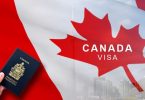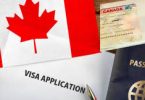Canada is a popular destination for individuals seeking to build a new life with their spouses. Known for its high quality of life, welcoming environment, and robust immigration system, the country offers numerous pathways for couples to reunite and settle together. For those in a genuine marital relationship with a Canadian citizen or permanent resident, gaining a visa through marriage is a viable option.
Canada’s immigration policies are designed to prioritize family reunification, which includes facilitating visas for spouses. Whether you’re newly married, engaged, or have been in a long-term partnership, there are specific processes and eligibility requirements you must meet to secure a Canada visa by marriage. These processes not only ensure the authenticity of the relationship but also protect against misuse of the system.
This guide explores 10 practical ways to obtain a Canada visa through marriage. From understanding spousal sponsorship to navigating common-law partnership requirements, you’ll find simplified and actionable information to help you achieve your goal of starting a life with your spouse in Canada. Let’s go into this proper!
1. Spousal Sponsorship Program
The Spousal Sponsorship Program is the most direct pathway for obtaining a Canada visa by marriage. This program allows Canadian citizens or permanent residents to sponsor their spouse for permanent residency.
Eligibility Requirements
- The sponsor must be at least 18 years old, a Canadian citizen, or a permanent resident living in Canada.
- The sponsored spouse must be in a legally recognized marital or common-law relationship.
- Both parties must demonstrate the genuineness of their relationship through supporting documents like photos, communication records, and proof of shared finances.
Process
- Submit Sponsorship Application: The sponsor submits an application to Immigration, Refugees, and Citizenship Canada (IRCC), including all required forms and fees.
- Processing Time: Applications typically take 12 months, though timelines can vary.
- Approval: Upon approval, the spouse receives permanent residency, allowing them to live and work in Canada.
2. Common-Law Partner Sponsorship
If you are not legally married but have lived together with your partner in a committed relationship for at least 12 consecutive months, you may qualify under the common-law partner sponsorship category.
Key Requirements
- Proof of cohabitation, such as lease agreements, utility bills, or shared bank accounts.
- Evidence of a genuine relationship, including photos, travel records, and correspondence.
- The sponsor must meet financial obligations to support the sponsored partner.
Benefits
This pathway is especially helpful for couples who cannot marry due to personal or cultural reasons but wish to live together in Canada.
3. Conjugal Partner Sponsorship
For couples who are unable to live together or marry due to exceptional circumstances, the conjugal partner sponsorship category offers a solution. This applies to individuals who face legal, cultural, or immigration barriers preventing them from cohabitating or marrying.
Eligibility
- Demonstrating a genuine relationship of at least one year.
- Proving why marriage or cohabitation was not possible, such as laws prohibiting same-sex marriage or travel restrictions.
Important Notes
This is considered a last-resort option, and applicants must provide substantial evidence of the challenges preventing traditional pathways.
4. Inland Sponsorship vs. Outland Sponsorship
Couples have the choice between inland sponsorship and outland sponsorship, depending on where the sponsored spouse resides during the application process.
Inland Sponsorship
- The spouse must already be in Canada on a valid visa.
- Allows the applicant to apply for an Open Work Permit while waiting for their application to be processed.
Outland Sponsorship
- The spouse lives outside Canada during the process.
- Applications are processed through Canadian visa offices abroad.
Considerations
Choose the inland option for faster reunification and work rights in Canada, or opt for outland if the spouse prefers to stay in their home country during the process.
5. Sponsorship for Same-Sex Spouses
Canada recognizes same-sex marriages and treats them equally under immigration laws. If you are in a same-sex marriage, you are eligible to apply for spousal sponsorship.
Requirements
- Proof of a legally recognized marriage in the country where the wedding took place.
- Evidence of a genuine and ongoing relationship.
Supportive Environment
Canada’s inclusive policies ensure that same-sex couples face no discrimination during the immigration process, making it a welcoming option for LGBTQ+ individuals.
6. Meeting Financial Obligations
Sponsors must demonstrate their ability to support their spouse financially. This includes:
- Providing basic necessities like food, clothing, and shelter.
- Covering healthcare costs not provided by provincial insurance.
- Avoiding reliance on social assistance programs during the sponsorship period.
Failure to meet financial requirements can result in application denial, so it’s essential to prepare thoroughly.
7. Open Work Permit for Sponsored Spouses
Spouses applying for inland sponsorship are eligible for an Open Work Permit, allowing them to work while waiting for their permanent residency application to process.
How It Works
- Submit the work permit application alongside the sponsorship forms.
- Processing usually takes a few months, granting temporary work rights to the sponsored spouse.
Benefits
This allows the couple to support themselves financially and integrate into Canadian society while awaiting a final decision.
8. Overcoming Rejection Challenges
Spousal sponsorship applications can be rejected for several reasons, including insufficient evidence of a genuine relationship or financial ineligibility.
Common Rejection Reasons
- Incomplete documentation.
- Relationship seen as fraudulent by immigration officials.
- Sponsor’s failure to meet income requirements.
Solutions
- File an appeal with the Immigration Appeal Division (IAD).
- Reapply with additional evidence to strengthen the case.
- Consult an immigration expert to avoid errors in the application process.
9. Provincial Nominee Programs (PNPs) for Spouses
Certain provinces offer additional opportunities for spouses to settle in Canada under Provincial Nominee Programs (PNPs). These programs are designed to address local labor market needs and may prioritize couples seeking to reunite.
Benefits
- Faster processing times compared to federal programs.
- Opportunities to settle in provinces like Manitoba, Saskatchewan, or Alberta.
Process
- Check specific provincial requirements and submit your application through the provincial portal.
10. Adapting to Canadian Life as a Sponsored Spouse
Once you secure a visa through marriage, integrating into Canadian life is a key step.
Practical Tips
- Learn English or French to improve communication and job prospects.
- Familiarize yourself with Canadian culture, healthcare, and legal systems.
- Seek community support groups for newcomers.
Support Services
Many provinces offer settlement services to help sponsored spouses find housing, jobs, and social connections.
Conclusion
Gaining a Canada visa through marriage is a rewarding pathway to starting a new life with your spouse in one of the world’s most welcoming countries. Whether you choose the spousal sponsorship program, common-law partnership route, or another method, understanding the requirements and preparing a strong application is essential for success.
By following the 10 pathways outlined in this guide, you’ll be well-equipped to navigate Canada’s immigration system with confidence. Seek expert advice if needed and ensure you meet all eligibility criteria to make your journey to Canada smooth and successful. With dedication and proper planning, you and your spouse can look forward to building a bright future together in Canada.






